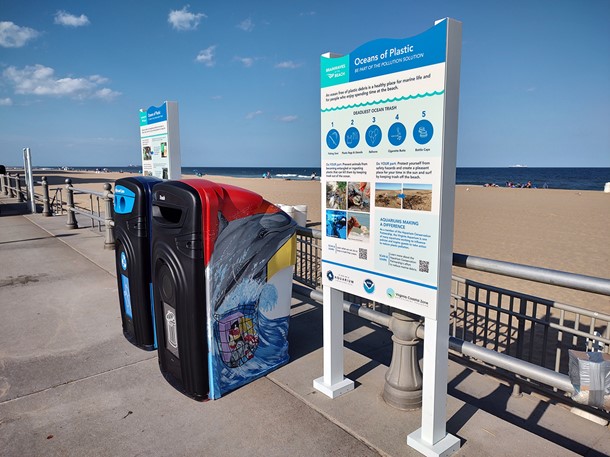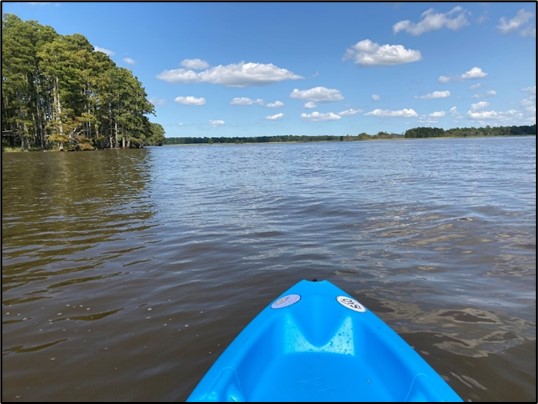Virginia Balances Economic Growth and Ecological Preservation through Ecotourism
The Takeaway: All told, Virginia has invested over $2.8 million in about 100 ecotourism planning and infrastructure projects over the years, with an impressive economic return of almost 12 times that investment.


Since 1988, the Virginia Coastal Zone Management Program has supported ecotourism in the state’s rural coastal communities. This approach is a win-win on many levels, including the income produced and the inherent safeguards ecotourism provides for coastal habitats. Virginia’s successful program includes water trails, public access sites, festivals, ecotour guide certification classes, and interpretive signage. An ecotourism survey found a $33.1 million dollar impact and creation of 442 jobs for the Middle Peninsula alone, including $1.6 million generated in state and local tax revenues.
One of the most popular initiatives are the water trails—notably the Seaside Water Trail, providing access to the entirety of the lower shore seaside bays, and the Virginia Oyster Trail, promoting oyster industry-centered ecotourism with economic, community, and environmental benefits. Grant funds facilitated an interactive trip planner, and the program expanded to address economic and climate resilience through business training and assessing ecotourism infrastructure vulnerabilities to sea level rise.
Hundreds of ecotour guide certifications have been issued, resulting in thousands of opportunities for tourists to learn about and enjoy the ecological and economic resources of the commonwealth. The coastal zone management program also emphasized interpretive signage and invested in large kiosks highlighting coastal resources. A kiosk on the Virginia Beach boardwalk, for example, focuses on marine debris and even includes recycling bins, serving as both an educational and functional tool.
While Virginia has invested $2.8 million in ecotourism projects over the years, the economic impact has been far greater, and the public benefit immeasurable. By responsibly leveraging conserved lands as revenue sources, reducing local service demands, and alleviating economic pressures on communities, Virginia’s success showcases the true power of ecotourism. (2023)
Partners: NOAA; Virginia Coastal Zone Management Program; Accomack-Northampton, Northern Neck, Middle Peninsula, and Richmond Regional Planning District Commissions (known as the Rural Coastal Virginia Alliance); city, county, and town representatives from Virginia’s coastal zone; Virginia Departments of Conservation and Recreation, Wildlife Resources, Virginia Department of Forestry; Virginia Aquarium and Marine Science Center; The Nature Conservancy; and Virginia Tourism Corporation
PRINT